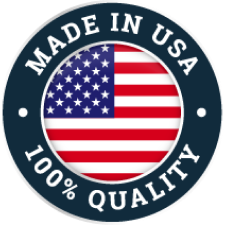
As the vibrant colors of spring emerge and nature awakens, so do seasonal allergies and volatile organic compounds (VOCs) in our indoor environments. The transition to spring signifies more than just changing weather; it’s also a crucial time to reassess our indoor air quality and ensure we’re equipped to combat allergens and pollutants effectively. One often overlooked but essential aspect of this is the regular maintenance and replacement of air filters.
Air filters serve as the first line of defense against airborne particles, including pollen, dust, mold spores, and VOCs, which can exacerbate allergies and contribute to respiratory issues. With the arrival of spring, allergen levels typically surge, making it imperative to have clean and efficient filters in place to trap these irritants before they circulate throughout our offices, warehouse facilities, casinos and manufacturing plants.
Moreover, VOCs, which are emitted by various sources in commercial settings, can pose significant health risks to employees and customers, including respiratory irritation and long-term health effects. High-efficiency air filters equipped with activated carbon or other specialized materials are designed to capture VOCs, helping to maintain a healthier indoor environment.
Regular filter maintenance is not only crucial for mitigating allergy symptoms and reducing exposure to harmful pollutants but also for optimizing the efficiency and lifespan of HVAC systems in commercial spaces. Clogged or dirty filters restrict airflow, forcing the system to work harder and consuming more energy. By ensuring filters are clean and promptly replaced as needed, businesses can improve energy efficiency, lower utility costs, and extend the longevity of their HVAC equipment.
With spring in full swing, now is the perfect time for offices, warehouse facilities, casinos, and manufacturing plants to prioritize filter maintenance and replacement. Establishing a routine schedule for checking and changing filters can make a significant difference in indoor air quality and overall well-being, especially for employees and customers prone to allergies or sensitive to airborne pollutants.
In conclusion, investing in high-quality air filters and maintaining a regular replacement schedule is essential for safeguarding against seasonal allergies and VOCs in commercial spaces during the spring months. By taking proactive measures to improve indoor air quality, businesses can create healthier work environments and promote the well-being of their employees and workers.
